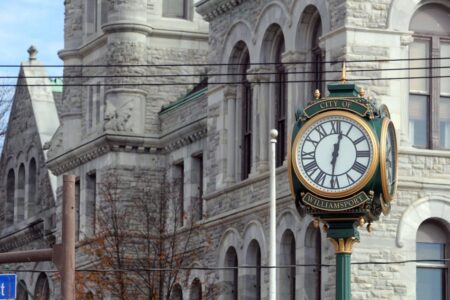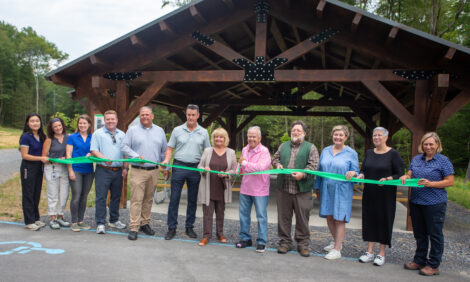The colorful history of Linden: From frontier to post office to river village
LINDEN — In the heart of Woodward Township is the unincorporated village of Linden. This little town within a town, is known throughout the area of Lycoming County and appears in many of the books detailing the county’s history.
In John Meginness’s historical tome “History of Lycoming County, Pennsylvania,” Linden was “where another Indian village was located” in 1742. Meginness said that a certain trail that “was an Indian path … had been widened by the first settlers” into a common road.
Meginness explained that this “road to-day (1892) leading along the base of the hills to Linden is the road laid out by those viewers ninety-six years ago.”
The author credits an Irishman by the name of Brattan Caldwell for being “one of the leading and representative men … during the stormy times of the Revolution and Indian invasion.”
“He was a native of County Kildare, Ireland, and came to this country about 1770, landing at Philadelphia,” Meginness explained. Caldwell was “attracted by the flattering reports of the fine lands on the West Branch” and he settled in the area in 1772.
Caldwell built a cabin but it was burned “on the breaking out of Indian troubles” and he was forced to flee the area. The Irishman returned in 1775 and married Elcy Hughes in the winter of that year.
“This wedding is said to have been the first one that occurred in the settlements west of Lycoming creek, and the event — was cause for a great jollification,” Meginness said. Caldwell would go on to work with the “Fair Play” group in the Jersey Shore area.
When Native American attacks in the region intensified, he took part in the mass exodus of “the ‘Big Runaway’ (and) he fled with his wife to Lancaster County where they remained until it was safe to return,” Meginness said.
More settlers came to the area and industries began to build up and with the construction of the canal, people were more attracted to what the county had to offer.
“In 1832, when the canal was being built, the contractor erected a number of shanties for his laborers, and the people called it ‘ShantyTown,’ ” Meginness said and added that “in the course of time, better buildings were put up and it grew into a pleasant village.”
At this same time, a man named Paul Brewer opened a hotel, “which he kept for sometime” and a man named William Maffet opened another hotel on April 19, 1832. “A post office was established … and called Level Corner,” Meginness said with James Russell Barr serving as the first postmaster.
In 1843, Brewer became the postmaster and “at the suggestion of John Wier, the post office was named Linden in 1845, a name by which it has been known up to the present time,” Meginness said.
As for what inspired Wier to suggest this, Meginness does not say. But a current Linden resident Kathryn Cowher believed she heard the answer years ago.
“I grew up in Linden and I heard it was named because of all the (linden trees),” Cowher said.
According to the website of the United States Department of Agriculture, a linden tree is part of the “tilia” family, which are found mostly in the Mid-West and Eastern parts of the United States and Canada.
Information provided by the Arbor Day Foundation said that birds, hummingbirds and bees make their homes in such trees.
The tilia tree also is a popular in the folklore among the Germans and Scandinavians. The website for the Arbor Day Foundation stated that “maidens would ‘dance wildly’ around the village linden, and women hoping for fertility would hug the tree or hang offerings in its branches.” It also was believed that “it was a good tree to avoid after dark” because it was believed that a tilia tree was “a favorite haunt of elves and fairies.”
As Lycoming County grew, Woodward Township was portioned from what was then part of then larger borough of Anthony.
“(The town of) Anthony was erected September 7, 1844, out of territory taken from Lycoming township and named in honor of Joseph B. Anthony, then president judge of this judicial district,” Meginness said.
He explained that Woodward Township, which was founded in 1855, was named “in honor of Apollos Woodward of Williamsport, who was on the bench as an associate judge.” Woodward died in 1858 at the age of 83 and is buried in the Williamsport Cemetery on Washington Boulevard.




